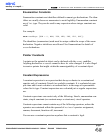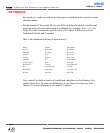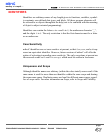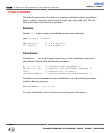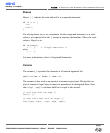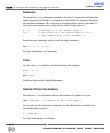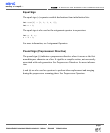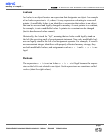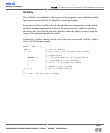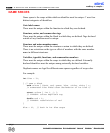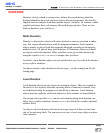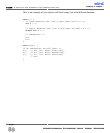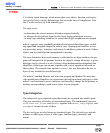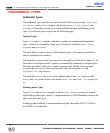
Lvalues
An lvalue is an object locator: an expression that designates an object. An example
of an lvalue expression is *P, where P is any expression evaluating to a non-null
pointer. A modifiable lvalue is an identifier or expression that relates to an object
that can be accessed and legally changed in memory. A const pointer to a constant,
for example, is not a modifiable lvalue. A pointer to a constant can be changed
(but its dereferenced value cannot).
Historically, the l stood for “left”, meaning that an lvalue could legally stand on
the left (the receiving end) of an assignment statement. Now only modifiable lval-
ues can legally stand to the left of an assignment operator. For example, if a and b
are nonconstant integer identifiers with properly allocated memory storage, they
are both modifiable lvalues, and assignments such as
a = 1 and b = a + b are
legal.
Rvalues
The expression a + b is not an lvalue: a + b = a is illegal because the expres-
sion on the left is not related to an object. Such expressions are sometimes called
rvalues (short for right values).
MikroElektronika:
Development
tools
-
Books
-
Compilers
53
page
mikroC
- C Compiler for Microchip PIC microcontrollers
mikroC
making it simple...



